End of Year Conferences Recap
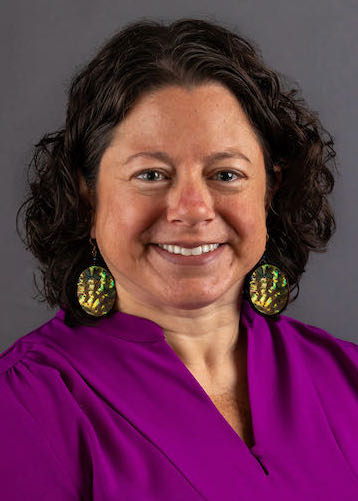
Jenni Lefing, AASB Membership Services Manager
Over 80 Executive Administrative Assistants, School Board Members, Superintendents and students attended this month’s Winter Boardsmanship Academy (School Law/Policy Day & Equity Day), Executive Administrative Assistants Conference, or AASB’s first Youth on Boards Training at the Hilton Anchorage. Each training offered two days of learning and networking opportunities.
School Law & Policy Day
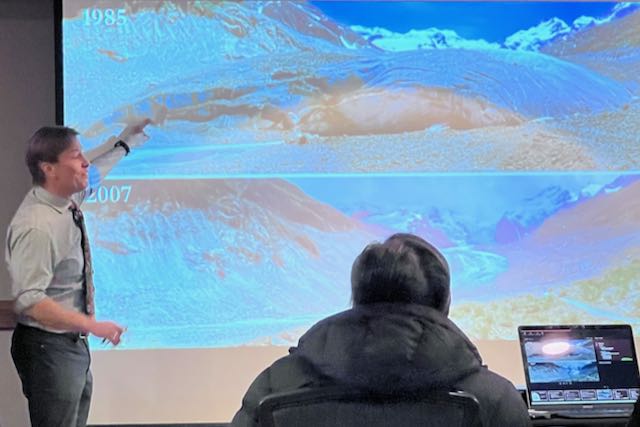
This year’s School Law & Policy Day, hosted by John Sedor, was focused on collective bargaining. Negotiations professionals from multiple perspectives explored this critical aspect of public education.
Presenters included Attorney and Negotiator Saul Friedman; Federal Mediation and Conciliation Commissioner Ligia Velasquez; CFO Sandy Daws, Kodiak Island Borough School District; NEA-Alaska Uniserv Director Jessica Minguez, and Front-Line Spokespersons and Participants Katherine Gardner, Associate Superintendent of Human Resources, Matanuska Susitna Borough School District; IIvory McDaniel-Ilgenfritz, Director Human Resources Department, Fairbanks North Star Borough School District; Nate Crabtree, Executive Director of Human Resources,
Equity Day
Saturday’s Equity Day was an opportunity for boards to think about equity within their schools. Equity Day began as a result of AASB’s long range plan goal around equity, and is modeled on similar training at other state school board associations. This year’s Equity Day was focused on the Science of Reading, and working together with students for student voice.
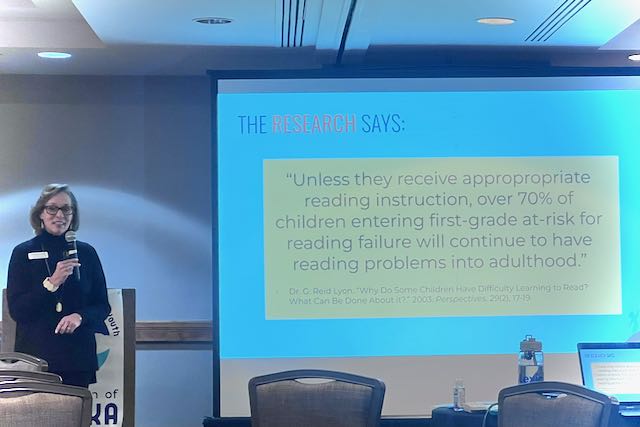
In the morning, Region 16 Comprehensive Center’s Tammy Van Wyhe, Alaska State Director, and Alecia M. Gardner, Education Specialist, presented on the Science of Reading and the role of the school board in supporting students’ reading achievement.
The session began with an overview of what the science of reading is; “ a vast, interdisciplinary body of scientifically-based research about reading and issues related to reading and writing.” It is an ongoing field of study focused on these 5 key areas: Phonological Awareness, Phonics, Fluency, Vocabulary, and Comprehension. Attendees were each provided a copy of Alaska’s Reading Playbook, which goes through these areas in depth.
The Alaska Reading Playbook and other reading resources can be found at bit.ly/aasb22-resources.
The second part of the workshop was focused on the role of school boards’ in the Science of Reading.
Recommendations for school boards include:
- Learning more about learning to read!
- Revisit your strategic plan: is reading addressed?
- Revisit 6000 series board policies
- Review interview questions for K-5 new hires
- Ask good questions about assessment results
- Ex. What percentage of students at district and school level meet or exceed proficiency on elementary English Language Arts AK STAR assessments? How many students at each school have a significant reading deficiency?
- Support high quality professional learning for all staff (including paraprofessionals).
- Be aware of curriculum and instructional materials being used in your district.
- Are they aligned with the science of reading?
- Are we consistently using curriculum dollars to ensure high quality instructional materials are in the hands of every teacher, including intervention materials?
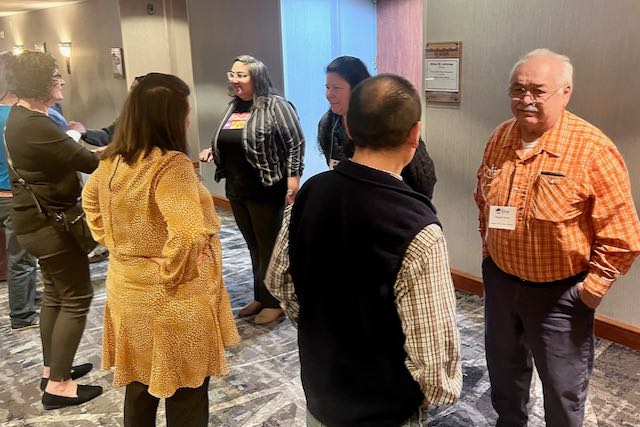

The afternoon was an opportunity for school board members to connect with students to explore what school boards are doing and could be doing better to engage students- a highlight for many attendees!
Students’ ideas on meaningful youth leadership (brainstormed during the Youth on Boards training) were shared out. This included: “strengths of our youth, biggest issues facing our schools, communities, and state, support from adults needed to bring youth voice forward, and what can board members do to amplify youth voice.” See more photos from the Youth on Boards training.
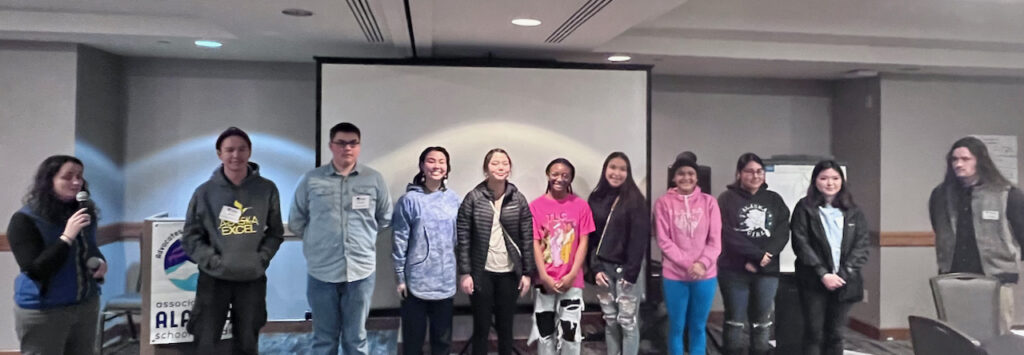
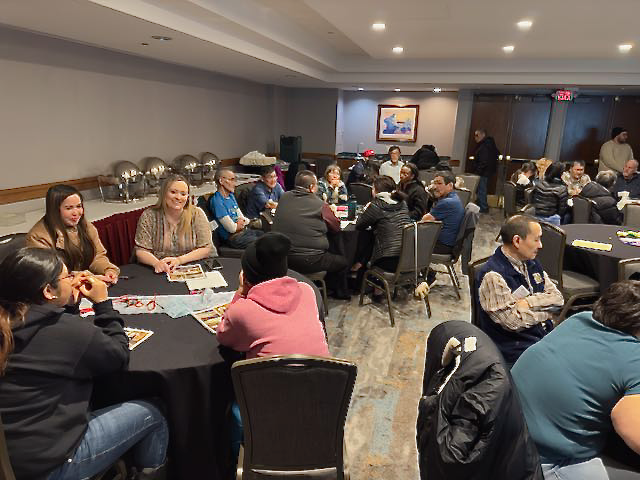


What Board Members Can Do to Amplify Youth Voice:
- Encouragement:Encourage students to attend meetings
- Logistics: Tell students when the meetings are andwhere.
- Listen deeply: Put effort into listening to what the students are saying
- Connect student leaders: Connecting with other school boards- reviewing student surveys, student representatives travel to villages to listen to other students’ perspectives.
- We need training: Statewide gatherings for student leaders and organizations
- Support teachers: Listen to what teachers are saying they need to support students
- Visit with us: Board members visiting the school
- Join our table: Help out with what students activities they can
- Help meet our basic needs: Try to help connect students with basic needs to that they can be more connected to school
- Listen to many voices: Involve a few different students in decision making, student reps, government and also regular students
Executive Administrative Assistants Training
Executive Administrative Assistants came together for their annual training to learn, connect, and share best practices. Topics covered included Role of the Board Clerk, Meeting Minutes, Human Resources, Effective Board Meetings, Learning about New Laws and Regulation, and Keeping Track of School Board Policy.
One critical responsibility for all Executive Administrative Assistants is serving as the school board clerk. This entails staying on top of changes in policies and regulation and maintaining accurate meeting minutes and records for the school board.
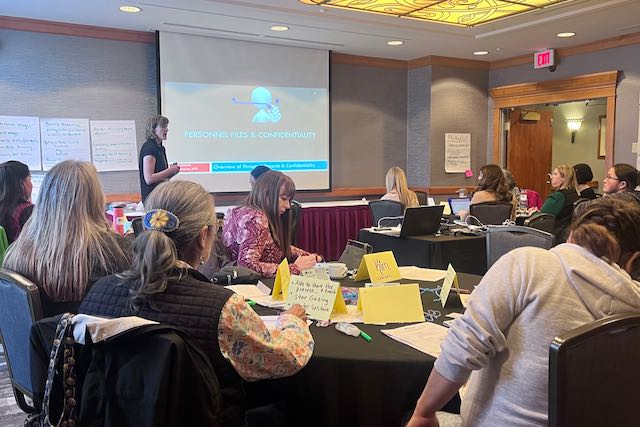
In addition, executive admins shared these areas of responsibilities for this role:
- Prepare for Board Meetings
- Advertise Meetings (inviting people, including elders)
- Board packets
- New Board Member training
- Travel, per diem
- Support committee meetings
- Resource fo the board
- Plan board events
- Board Recognition (ex. Certificates, nominations)
- Student and staff recognition
- Attend local staff meetings (for policy updates)
- Complaint process
- Advisory School Board support (including elections)
- Facilitating superintendent hiring
- Updating Board Policies
- Negotiations process -notetaker, maintain information
Carleen Mitchell, Deputy Director, APEI presented on personnel files and confidentiality, which included what should and should not be kept in a personnel file.
Timi Tullis, AASB Associate Executive Director shared tips on running an effective board meeting. This included:
- Everyone at the board table (Superintendent, board members, board secretary) can call a point of order, if they see something happening that does not follow meeting protocol.
- Board members should go through Superintendent to ask for staff
- Non-verbal communication matters!
- Every motion needs a second. If there is no second to a motion, the motion does not move forward.
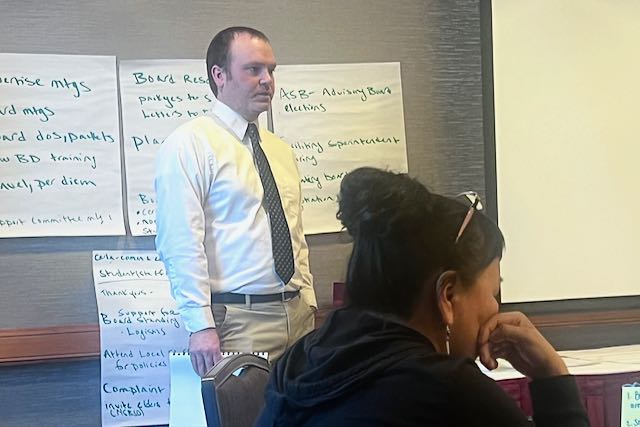
Michael Caulfield, Attorney with Jermain Dunnagan & Owens, P.C., presented on new education laws & regulations in Alaska as a result of last year’s Alaska Legislative Session.
The largest update is around the Alaska Reads Act (House Bill 114 / Senate Bill 111). This includes support for early education programs, screening reading deficiencies and providing reading intervention services, establishing a reading program in DEED, and virtual education program.
Other updates shared include: SB 20, which streamlines how teachers get their certifications in Alaska. This bill addresses the challenges districts have had in this area by allowing reciprocity for teachers who have a teaching certificate in another state.
And, HB 53 will enable immediate enrollment in a public school for children in a military family coming from out of state, as some districts have had issues with new military families providing proof of residency in the school district.
We hope attendees gain key insights and takeaways to bring back to their board and districts! Our next in-person event is February 4-7 in Juneau: AASB’s Leadership Academy: Legislative Fly-In & Youth Advocacy Institute for high school students. Registration will open in January.
Meanwhile, we welcome you to explore resources from this month’s conferences.
